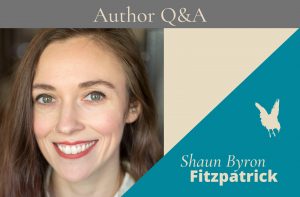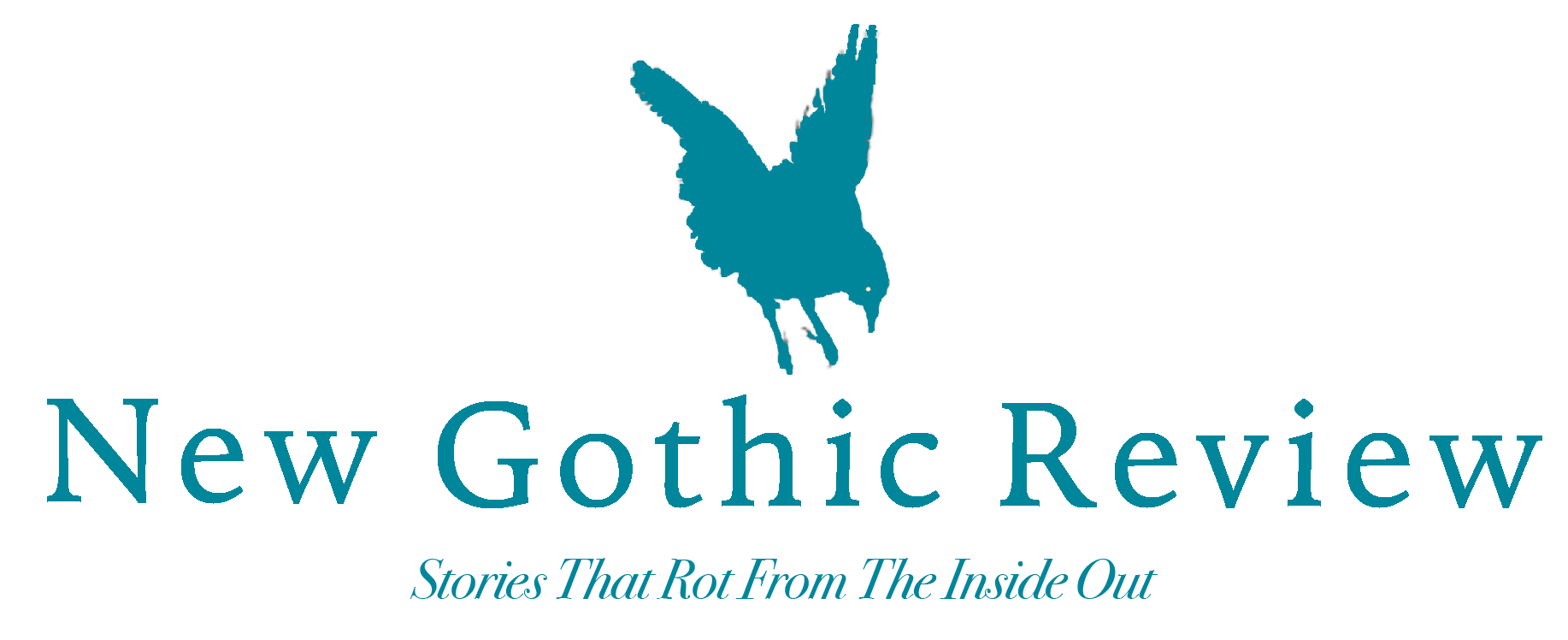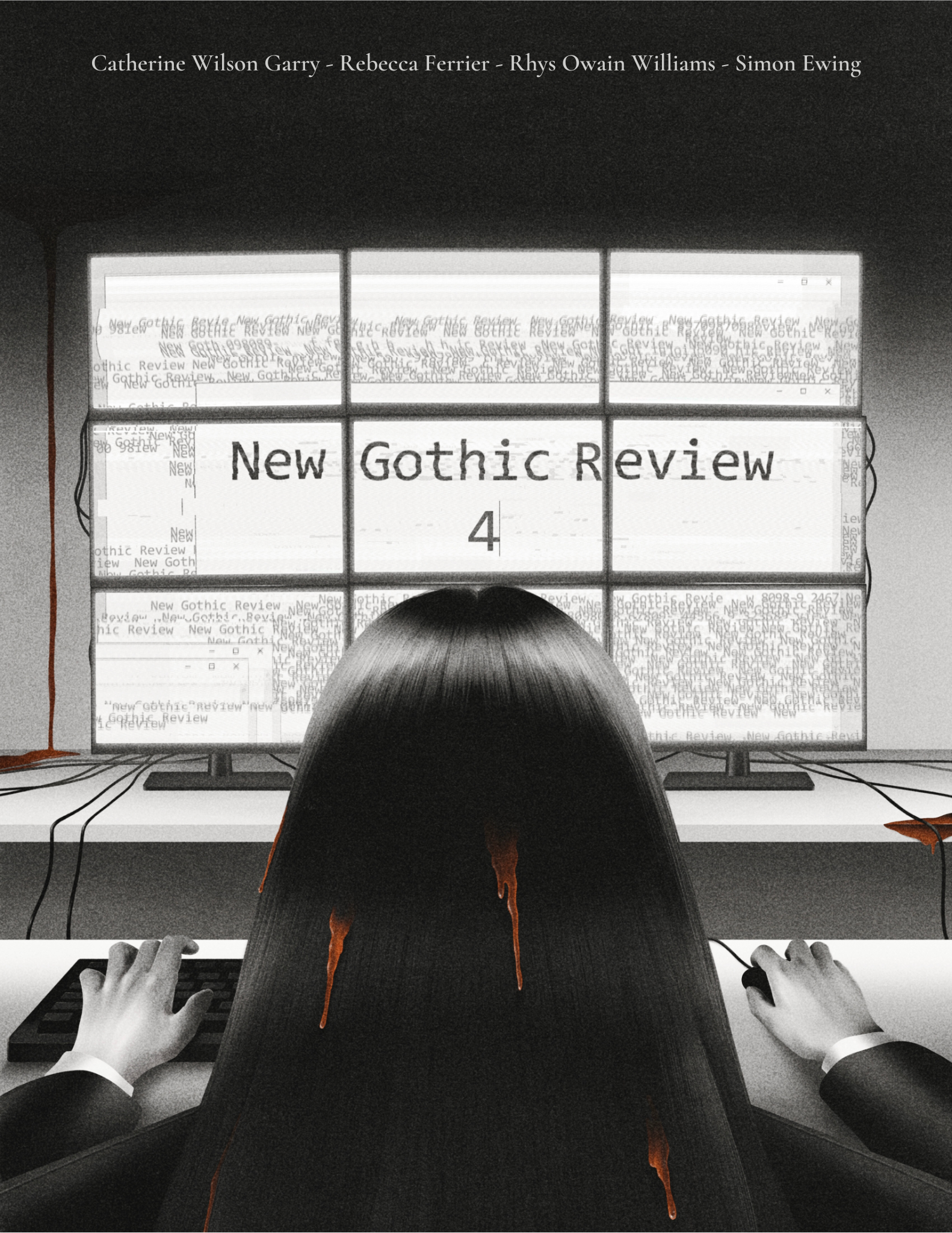
Shaun Byron Fitzpatrick lives in Philadelphia with her husband and black cat. She has current or upcoming publications in Maudlin House, Ellipsis Zine, and Coffin Bell Journal. You can find her on Instagram at @shaunyfitz.
We’re pretty faithless to formal definitions of what’s gothic and what isn’t. If you strip away the tropes and the familiar imagery, what do you feel is at the heart of gothic literature?
To me, what makes something gothic is so dependent on setting and atmosphere. People tend to automatically think about castles and crumbling manors, but I think any setting can be gothic if there’s a sense of claustrophobia or decay to it. That’s what gothic is to me, a kind of melancholy or dread (or both!) that’s exasperated by a feeling of being trapped.
How do you feel “My Husband’s Garden” fits into that conception of gothic literature?
Setting-wise, I took a lot of inspiration from Charlotte Perkins Gilman’s “The Yellow Wallpaper.” Castles are in short supply these days, so I knew I wanted to write a modern gothic story that had a setting that would be immediately recognizable – a cramped apartment. And then, to really amplify the feeling of claustrophobia, I added a massive amount of plants. (This setting, a small apartment crowded with houseplants, is probably pretty familiar to a lot of millennial readers.)
My choice to tell this story in the first person was also a nod to the gothic tradition. We stay in the narrator’s head the entire time, without getting any sort of outside perspective. She never leaves the apartment, so we’re given no reprieve from the setting. And as the story progresses, we see her start to lose her grip on reality. Are the events at the end actually happening, or has our narrator finally snapped? This isolation and a spiral into what may or may not be madness is at the heart of gothic literature to me.
Can you speak to any inspirations or influences for the piece?
As I said, “The Yellow Wallpaper” was incredibly influential in helping me structure this piece. But the idea for this story actually came after reading Silvia Moreno-Garcia’s brilliant Mexican Gothic. There was such a sense of nature and natural decay in that story that I found beautiful and really disturbing, and I knew I wanted to try to work with those themes in some way.
In general, all of the things I write tend to have a magical, or at least speculative, element to them. I draw a lot of inspiration from fairytales, folklore, and fantasy in general. So, when beginning to write this piece, I knew I was going to incorporate a magical element in some way. Whether the reader chooses to read this story as magic or madness is up to them, but that influence is always present in my writing.
What piece of writing advice do you hold most dear?
I really do think that, at the end of the day, you should write what you want to read. I had a writing professor in college who was very anti-genre fiction, and didn’t like to see it written in his class. So instead I would try to write things that I didn’t feel passionately about, and that would show in my writing. Now, I only write the types of stories that I enjoy as a reader. Even if not all of my stories are published, I can say that I’ve found a lot of joy in every piece that I’ve written. Writing is hard and time-consuming work; if you don’t find joy in what you write, it really isn’t worth it!
We hope this magazine assists in blurring the perceived lines between so-called “genre fiction” and “literary fiction.” As a writer, do you embrace one of these categories over another? Why?
I’m a huge fan and supporter of genre fiction. It’s what I read, and it’s what I write. I find “literary fiction” to be a snobby term, and I never use it for my own work. I think there’s an implication that genre fiction can’t have literary merit, which just isn’t true! But there’s also this larger sense that only literary fiction is “real” writing, and that genre fiction is somehow low-brow or of a lesser quality. I have an undergraduate and a graduate degree in literature; I spent years reading the canon and “literary” fiction. Now, all I want to do is read fantasy and horror and romance novels. I prefer them, and I get more enjoyment out of them. So, that’s what I write as well!




